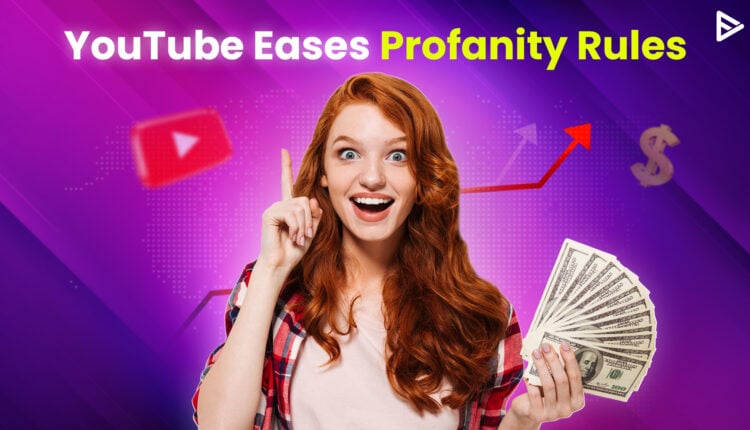On July 29th, YouTube officially updated its profanity and monetization policy. Creators will now have more flexibility with the language use. This update comes days after YouTube Partner Program’s new policy. YouTube updated its monetization rules to restrict mass-produced and AI-generated content that lacks originality.
Now, with a new strategic shift in YouTube Monetization rules, It is expected to have a broad impact on the world’s largest video-sharing platform. Under the revised guidelines, strong language is now permissible within the first few seconds of the video.
YouTube’s Updated Monetization Rules Explained
Previously, creators who used strong profanity within the first seven seconds of a video would lose revenue. The demonetization of video content frustrated creators due to its strict enforcement on even mild language use. Further, YouTube marked its video as unsuitable for most advertisers.
This policy had impacted several top-performing niches, including gaming, commentary, and entertainment. YouTube’s change in stance comes in response to an apparent backlash from the creators. Hence, In 2023 YouTube began revisiting its approach, gradually relaxing the restrictions.
Key Points from the New YouTube Monetization Rules:
- Videos containing profanity within the first 7 seconds will no longer trigger automatic demonetization.
- Moderate profanity, infrequently used in the video, is still considered ad-friendly.
- Profanity in video titles or thumbnails is eligible for full demonetization.
- Repeated or excessive use of profanity may earn limited or no revenue at all.
- Slurs, hate speech, and harassment are strictly prohibited. Using it will result in full demonetization or removal of the video.

Why YouTube Relaxed Its Profanity Policy in 2025?
Industry analytics indicate an increase in advertiser tools that align more closely with broadcast standards. This update aligns with YouTube’s new policy, which aims to target AI-powered content and encourage originality across the platform. The updated monetization is a natural extension of YouTube’s new approach.
YouTube creators reacted to the policy update, stating it aligns more closely with expression without financial penalties. The response was generally positive, though some remained skeptical about the consistency of the enforcement.
The profanity policy now offers more creative freedom. YouTube still advises creators to use strong language in moderation. YouTube Monetization rules though adjustable, are still present.
Conclusion
The policy change is part of YouTube’s broader evolution to have more flexibility in original content. The message is clear for the creators, language will no longer be a hindrance to YouTube monetization rules, as long as it is used thoughtfully. With YouTube’s new AI-powered update, it is taking a step towards modernization.


